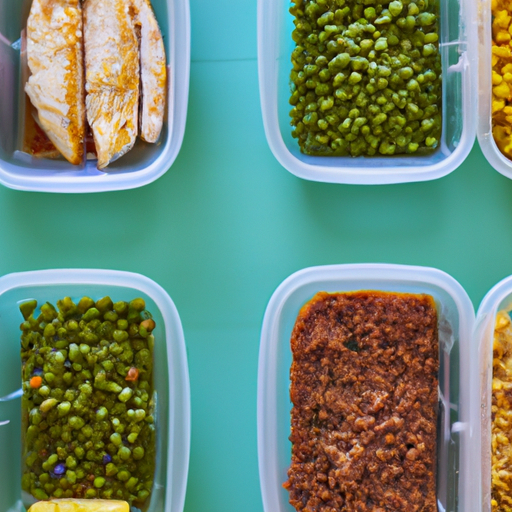
The Ultimate Guide to Meal Timing for Fitness Success
Welcome to your culinary compass guiding you through the bustling forest of fitness and nutrition! If you’ve ever wondered whether munching on those midnight snacks could be sabotaging your fitness goals, you're in the right place. This guide is your all-in-one resource for understanding the magic of meal timing and how it connects with fitness success. Let's dive into a platter of nutrition tips that are sure to whet your appetite for progress.
Why Meal Timing Matters
Contrary to the overarching belief that “calories are calories, no matter when you consume them,” the timing of your meals can be as crucial as putting avocado on toast—life-changing. Think of meal timing as the unsung hero that can elevate your fitness regime from zero to hero. Why?
- Energy Optimization: Your body is more than just a calorie-crunching machine. It's a finely-tuned instrument where timing your meals can optimize energy levels and improve performance.
- Metabolic Boost: Imagine your metabolism as an engine. Meal timing can act as the high-octane fuel it needs to rev up efficiently.
- Muscle Maintenance: Protein synthesis is particularly picky about timing. Strategically placed meals can aid in building and maintaining muscle mass.
Basic Principles of Meal Timing
Just like there's no 'one-size-fits-all' when it comes to shopping for hats or downloading cat memes, meal timing also has no universal rulebook. However, several fundamental guidelines can assist you in aligning your meals with your fitness goals:
1. The Pre-Workout Meal
Think of the pre-workout meal as prime time. This is when you need to fuel your body with sufficient energy to tackle your exercise routine effectively. Ideal foods for this meal are rich in carbohydrates and moderate in protein.
2. The Post-Workout Meal
Ever heard that you should consume protein within 30 minutes of finishing your workout? While you don’t need to make a mad dash to the kitchen, the post-workout meal is pretty essential. This is your chance to replenish glycogen stores and promote muscle recovery. Protein and carbohydrates should be your main players here.
3. Breakfast
Some say breakfast is the most important meal of the day, and while skipping it won't cause the universe to implode, it can certainly set the tone. Eating a balanced breakfast can help restore glycogen levels and get your metabolism going for the day.
The Science Behind Meal Timing and Fitness Success
Feeling like a brainy scientist in a lab coat? Excellent! Understanding the science behind meal timing can enhance your grasp of its impact on fitness success. Here's the 101:
Circadian Rhythms
Your body has its own internal clock, known as circadian rhythms, which influences your hormones and metabolism. Eating meals in sync with these rhythms can improve weight management and energy balance.
Anabolic vs. Catabolic States
In simple terms, the anabolic state is where there's more muscle-making happening, while the catabolic state is where muscle breakdown occurs. Consistent meal timing helps in extending the anabolic state, thus helping in maintaining muscle mass.
Create Your Personalized Meal Timing Schedule
Customization is key! As each body is unique (yes, like a snowflake or lost left sock), tailoring a meal timing schedule to suit your lifestyle is crucial for fitness success.
Step 1: Identify Your Fitness Goals
- Are you aiming for muscle gain, fat loss, or overall health improvement?
- Do you memory-hoard your workout snacks like a squirrel or prefer larger meals?
Step 2: Consider Your Daily Routine
- When do you usually exercise? Slot pre-and post-workout meals around this.
- How many meals do you prefer to eat daily? Two, three, or a handful of tiny ones?
Step 3: Meal Prep like a Pro
Meal prepping is the seasoned chef's secret weapon. Use it to ensure you have balanced, nutritious meals ready when you need them.
Common Questions About Meal Timing
As you dive into the nitty-gritty of meal timing, some questions might pop up like popcorn in a hot pan. Let's take on these FAQs:
1. Does Meal Timing Affect Sleep?
Yes, chomping down a hearty meal too close to bedtime can interfere with sleep quality. Try to eat your last meal at least 2-3 hours before sleeping.
2. What If I Miss a Pre-Workout Meal?
Oh no, the horror! Don't worry too much; just adjust your post-workout nutrition to include a slightly larger meal to compensate.
3. How Much Should I Eat?
The serving size isn’t a 'one-size-fits-all'—find what works for you based on activity levels, goals, and metabolism.
Nutrition Tips for Optimized Meal Timing
Tuck these nutrition tips into your toolbelt for enhanced meal timing and overall fitness success:
- Hydration Station: Always keep water handy. Hydration is key for both physical performance and aiding digestion.
- Variety is the Spice of Life: A varied diet ensures a plethora of nutrients essential for fitness.
- Nutrient Density over Calorie Counting: Focus on foods that are rich in vitamins, minerals, and other nutrients over mere calorie count.
Breaking Myths Around Meal Timing
Let's bust some myths like old piñatas at a birthday party to clear the clouded air surrounding meal timing and debunk misconceptions for fitness success:
Myth 1: Eating After 8 PM Makes You Gain Weight
False! Your body doesn’t have a specific bedtime cutoff for calorie absorption. It's more about total calorie intake and expenditure over the day.
Myth 2: Skipping Breakfast Saves Calories
Skipping meals can lead to overeating later. Breakfast eaters often make healthier choices throughout the day.
Conclusion
So there you have it—a comprehensive guide to meal timing for fitness success! By smartly strategizing your meal timings and incorporating these tips, you’ll be skipping down the path to fitness with the finesse of a gazelle wearing running shoes.
Whether you're a seasoned athlete or a beginner venturing into the enthralling world of fitness, remember this: Every meal is a stepping stone toward your goals. Eat strategically, enjoy wholeheartedly, and, above all, stay awesome!
